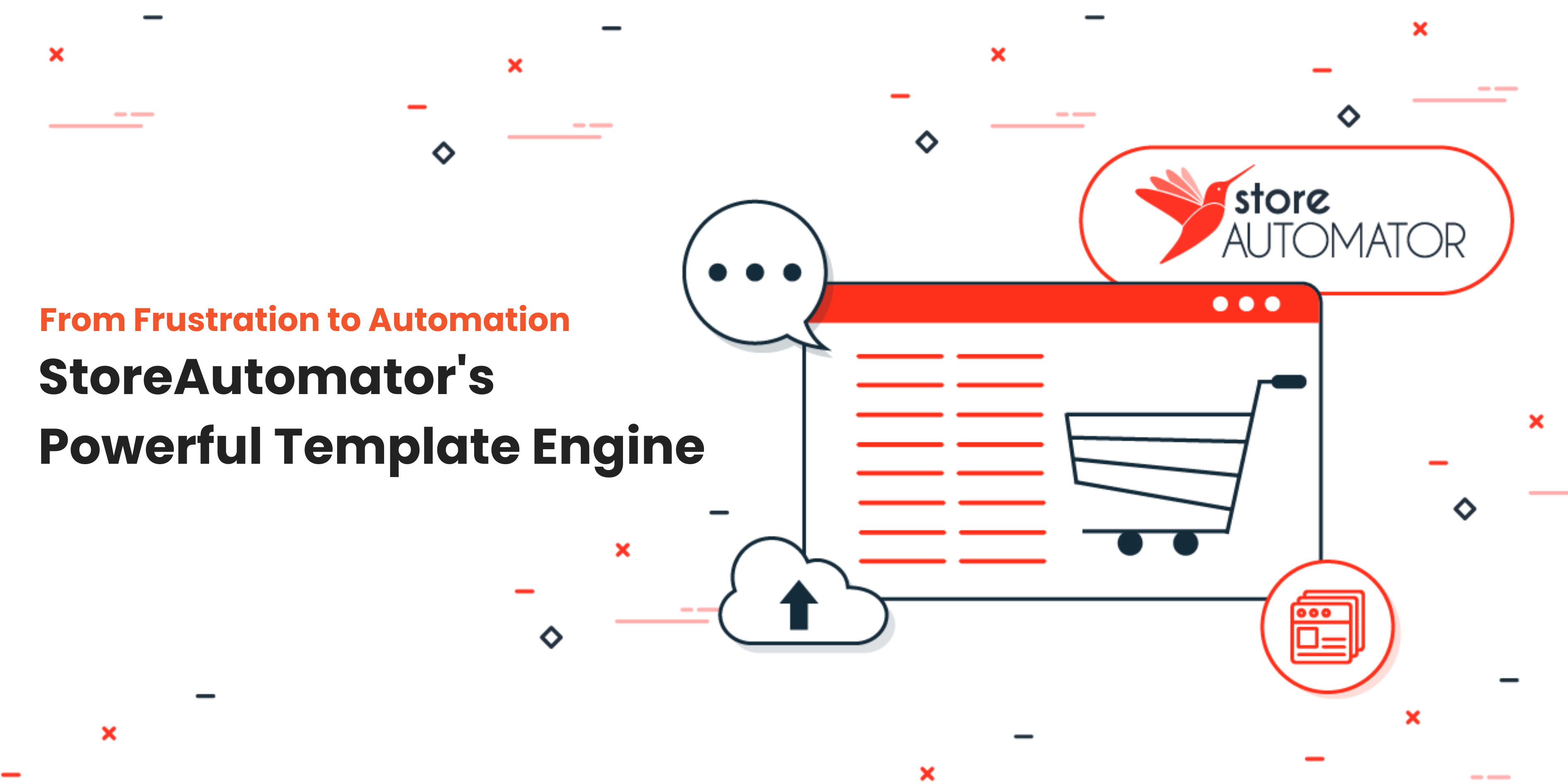In the fast-paced world of e-commerce, sellers face a constant challenge: efficiently managing product data across multiple sales channels. This is where marketplace templates come in—an underlying tool to automate listings, minimize human error, and facilitate scalable growth. When it comes to template systems, StoreAutomator provides a uniquely flexible and powerful solution that stands above the rest.
What Are Marketplace Templates?
Marketplace templates are pre-defined formats or structures used to list products on marketplaces like Amazon, eBay, Walmart, and others. They dictate how data, like product titles, descriptions, prices, images, custom attributes (the required fields by the marketplaces), and category information, is submitted to a marketplace. Templates act as the 'translation layer' between your product database and each channel’s requirements.
Rather than manually entering details for every product, sellers can rely on templates to apply consistent formatting and automate much of the listing process.
Why Do E-Commerce Sellers Need Templates?
Templates help sellers:
- Standardize product data across multiple listings and platforms.
- Speed up the listing process by applying the same format to many products.
- Ensure compliance with marketplace-specific rules.
- Minimize errors caused by manual data entry or outdated formats.
- Optimize listings for visibility and conversion using tested formats.
- Scaling an e-commerce business without templates becomes a daunting manual task vulnerable to inconsistencies and policy violations.
This is where StoreAutomator stands out. It simplifies the complex process of creating and managing templates with easy-to-use and flexible tools for multiple marketplaces. Sellers can automate product data transformation, saving hours of manual work and avoiding costly mistakes. With StoreAutomator, even extensive catalogs can be managed efficiently and accurately across channels.
Challenges of Static Templates in Dynamic Marketplaces
Most traditional listing tools use static templates that don’t adapt well to the constant changes in marketplace requirements. Sellers often struggle with:
- Rebuild or edit templates every time a marketplace updates its listing rules.
- Manually customizing fields for different categories or product types.
- Lack of control over logic, conditions, or variations in product data.
- Incompatibility between one-size-fits-all templates and specific business models
These limitations lead to delays, listing errors, and compliance issues, directly impacting a seller's bottom line.
From Frustration to Automation: StoreAutomator's Powerful Template Engine
StoreAutomator was designed with these exact challenges in mind. Its template engine transforms listing management from a frustrating, error-prone task into an automated, scalable process. Sellers gain the power to build intelligent, rule-based templates that adapt to marketplace rules in real-time.
With this system, what once required manual tweaks and guesswork is now handled through conditional logic, dynamic fields, and export overrides—all managed through an intuitive interface.
StoreAutomator’s Template System: Built for Flexibility
Unlike rigid systems, StoreAutomator’s template engine is built for dynamic, rule-based automation. It empowers sellers to create custom export templates that use conditional logic, override rules, and field-level controls tailored for each marketplace.

All available templates in StoreAutomator
Key features include:
- Dynamic Fields: Create templates that change based on product attributes.
- Rules and Expressions: Automatically modify data, such as truncating titles or reformatting bullet points.
- Template Inheritance: Use base templates and extend them with channel-specific variations.
- Multiple Template Versions: Test and switch between versions to optimize performance.
- Replacements / Lookup Lists: Automatically replace the value of the data according to your needs, without altering your master data, which can be easily used in the templates.
This flexibility gives sellers complete control over how their data is transformed and delivered.
Marketplace-Specific Templates
StoreAutomator enables sellers to create and assign templates tailored to specific marketplaces such as Amazon, eBay, Walmart, Shopify, Mirakl, etc., ensuring that each channel receives precisely formatted data. Each marketplace can have its template that:
- Adapts to category-level requirements
- Matches field names and values as per channel standards
- Handles variations like color, size, or bundles seamlessly
StoreAutomator lets you map and send additional custom fields, metafields (for Shopify), to your templates. This gives sellers more control to pass through extra product information, enrich listings, and meet unique business or marketing needs, without being limited by marketplace constraints.
With StoreAutomator, you can clone and adjust templates per channel without rewriting from scratch—saving time and eliminating risk.
The platform supports various template types, including XML, flat files, and JSON, allowing for flexibility based on marketplace requirements. Templates can be assigned to product categories within StoreAutomator, facilitating organized and efficient data management across different channels.
With StoreAutomator's robust template management system, sellers can streamline their multi-channel operations, reduce manual data entry, and ensure compliance with each marketplace's unique listing standards.
How StoreAutomator Saves Time, Reduces Errors, and Improves Accuracy
By leveraging dynamic templates, sellers achieve:- Faster time to market for new listings
- Reduced manual intervention and rework
- Accurate and consistent product data across all channels
- Fewer listing errors and rejections from marketplaces
- Improved scalability, even with large catalogs
StoreAutomator simplifies template management and makes multi-channel selling smarter, more resilient, and more efficient.
Examples of Marketplace Templates
-1.png?width=1267&height=900&name=image%20(4)-1.png)
This is a sample of the Amazon XML template format, which shows that we can manage complex business rules in the template. Amazon has the newest template in JSON format, which allows you to combine all product types and manage your listing in one template without having to deal with tons of templates.
-1.png?width=1271&height=907&name=image%20(1)-1.png)
Walmart 5.0 XML is the latest version of the template, and it allows you to combine all product types in one template while still using all functionality.
.png?width=1268&height=908&name=image%20(3).png)
With a Shopify template, you can send your specific meta fields as single-line text or multi-line text. You can also send variant meta fields and use other templates' functionality.
-1.png?width=1260&height=903&name=image%20(2)-1.png)
eBay XML template mapping fields with your attributes, rules, and replacements as other templates.

